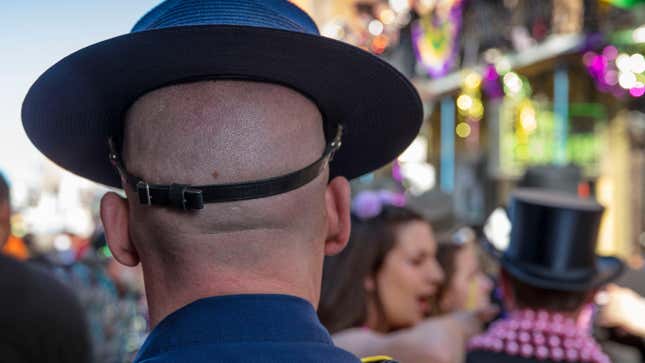New Orleans Has a Rape Response Problem
Police are taking hours to arrive at the scene; rape kits are going untested; cases are indefinitely stalled.
In DepthIn Depth

In May 2021, a New Orleans Police Department crime scene technician reported that she was raped by a police officer while they were out on a date. The officer, Gerry Paul, was arrested, temporarily suspended, and then placed on administrative reassignment. More than a year later, she tells NOLA.com that her criminal investigation has stalled.
The crime scene technician, who asked the newspaper’s reporter that she not be named, alleges that she’d been drinking with Paul, her colleague, in his apartment, when he performed oral sex on her. In an affidavit filed by police in criminal court, she alleges he reached for a condom, but when she told him to stop, he refused, muttering that it was “too good to stop.”
“He repeatedly ignored me when I told him to stop, and no, and that I wasn’t ready,” she wrote in her petition for a restraining order. She said she tried to push Paul off, but he kept ignoring her and placed her hands behind her back “in an arresting position.” She wrote that he then choked her and raped her, all “with a firearm visible on the nightstand.” The forensic exam “documented bruising and damage to the back of her throat from the strangulation,” according to Nola.com. (A spokesperson for NOPD did not respond to Jezebel’s request for comment, and Paul has not publicly commented on the allegation.)
-

-

-

-

-

-

-

-

-

-

-

-

-

-

-

-

-

-

-

-

-

-

-

-

-

-

-

-

-

-

-

-

-

-

-

-

-

-

-

-








































